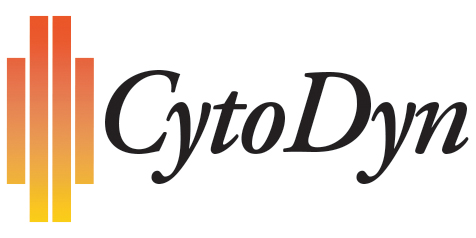
- New data suggests that 525 mg dose and 700 mg dose responders’ rates are approximately 90% for those HIV patients who pass first 10 weeks of monotherapy without virologic failure
- CytoDyn has engaged top CCR5 expert, Bruce Patterson M.D., former Medical Director of Virology at Stanford University Hospitals and Clinics, to develop a test to potentially optimize dosages for patients in the future (350 mg, 525 mg, or 700 mg)
- 50 patients in 350 mg dose arm have reached about 1 year of monotherapy with 6 patients passing 4.5 years (on extension study).
VANCOUVER, Washington, March 26, 2019 — CytoDyn Inc. (otc.qb:CYDY), (“CytoDyn” or the “Company”), a late stage biotechnology company developing leronlimab (PRO 140), a CCR5 antagonist with the potential for multiple therapeutic indications, today announced that new data shows that a weekly dose of 525 mg and 700 mg of leronlimab yielded approximately a 90% response rate for those HIV-infected patients who pass the first 10 weeks of monotherapy without virologic failure. Approximately 30% of subjects fail within the first 10 weeks of monotherapy on a 525 mg dosage and 17% at a dosage of 700 mg. Those patients who pass the first 10 weeks of monotherapy on a 525 mg dose have reached an average total of 32 weeks with sustained viral load suppression.
CytoDyn has recently filed the first of three sections of its BLA with the U.S. FDA for leronlimab for 700 mg weekly dose as a combination therapy with HAART for HIV-infected patients. The FDA previously granted Fast Track Designation and Rolling Review for leronlimab, which facilitates frequent interactions with the FDA review team. The Rolling Review process allows CytoDyn to submit individual sections of the BLA for review, rather than waiting on FDA review until all three major sections are completed and filed. The CytoDyn team is actively completing the remaining two sections of the BLA. If a 700 mg weekly dose of leronlimab is approved for combination therapy, the approval will serve as a foundation for a potential label expansion for leronlimab as a monotherapy for HIV.
CytoDyn has reached agreement with single cell diagnostics company IncellDx, Inc. to perform CCR5 genotyping and quantitative CCR5 expression profiling on cells potentially infectible by HIV to bring precision medicine to HIV therapeutics. Recent discussions with Dr. Bruce K. Patterson, CEO and Founder of IncellDx, Inc. and a top expert in CCR5, has revealed that through certain laboratory tests looking at the genetics and expression of CCR5 in individual patients, CytoDyn may more closely match the most effective dose for each HIV monotherapy patient to achieve viral suppression. This dose could be 350 mg, 525 mg, or 700 mg depending on the individual CCR5 receptor density of each patient.
“We are excited to help development efforts for the first self-injectable, subcutaneous monotherapy for HIV patients,” stated Dr. Patterson, whose work has also identified a role of CCR5 in immune cells that regulate the immune response against cancer. CytoDyn believes similar laboratory tests may ultimately prove to be of value in the areas of oncology and immunology as well.
“If leronlimab is proven to be a successful monotherapy and is approved by FDA, it would be a game changer for HIV patients, offering a safe, highly effective, durable, once weekly treatment option,” stated Dr. Nader Pourhassan, President, CEO and director of CytoDyn. “We are excited that our response rate with the 525 mg and 700 mg dosages is close to 90% for those patients who pass the first 10 weeks of monotherapy without virologic failure,” added Dr. Nader Pourhassan. “We believe HIV patients who have R5-tropic virus may respond to monotherapy with a different dose structure depending on their CCR5 density of each T-cell. We will explore a CCR5 receptor occupancy test and genotyping tests for each patient prior to initiating monotherapy with the goal of determining the right dose for each patient.” Dr. Pourhassan continued, “If we are successful, it would represent a major step forward in personalized medicine for treatment of HIV patients.”
About Leronlimab (PRO 140)
The U.S. Food and Drug Administration (FDA) has granted a “fast track” designation to leronlimab (PRO 140) as a combination therapy with HAART for HIV-infected patients. Leronlimab is an investigational humanized IgG4 mAb that blocks CCR5, a cellular receptor that appears to play multiple roles with implications in HIV infection, tumor metastases and immune signaling. Leronlimab has successfully completed nine Phase 1/2/3 clinical trials in over 700 people, including a successful pivotal Phase 3 trial in combination with standard anti-retroviral therapies in HIV-infected treatment-experienced patients.
In the setting of HIV/AIDS, leronlimab belongs to a new class of therapeutics called viral-entry inhibitors; it masks CCR5, thus protecting healthy T cells from viral infection by blocking the predominant HIV (R5) subtype from entering those cells. Leronlimab has been the subject of nine clinical trials, each of which demonstrated that leronlimab can significantly reduce or control HIV viral load in humans. The leronlimab antibody appears to be a powerful antiviral agent leading to potentially fewer side effects and less frequent dosing requirements compared with daily drug therapies currently in use.
In the setting of cancer, research has shown that CCR5 likely plays a central role in tumor invasion and metastasis and that increased CCR5 expression is an indicator of disease status in several cancers. Moreover, research has shown that drugs that block CCR5 can block tumor metastases in laboratory and animal models of aggressive breast and prostate cancer. CytoDyn is conducting additional research with leronlimab in the cancer setting and plans to initiate additional Phase 2 human clinical trials, in addition to triple-negative breast cancer, when appropriate.
The CCR5 receptor also appears to play a central role in modulating immune cell trafficking to sites of inflammation and may be crucial for the development of acute graft-versus-host disease (GvHD) and other inflammatory conditions. Clinical studies by others further support the concept that blocking CCR5 using a chemical inhibitor can reduce the clinical impact of acute GvHD without significantly affecting the engraftment of transplanted bone marrow stem cells. CytoDyn is currently conducting a Phase 2 clinical study with leronlimab to further support the concept that the CCR5 receptor on engrafted cells is critical for the development of acute GvHD and that blocking this receptor from recognizing certain immune signaling molecules is a viable approach to mitigating acute GvHD. The FDA has granted “orphan drug” designation to leronlimab for the prevention of graft-versus-host disease (GvHD).
About CytoDyn
CytoDyn is a biotechnology company developing innovative treatments for multiple therapeutic indications based on leronlimab (PRO 140), a novel humanized monoclonal antibody targeting the CCR5 receptor. CCR5 appears to play a key role in the ability of HIV to enter and infect healthy T-cells. The CCR5 receptor also appears to be implicated in tumor metastasis and in immune-mediated illnesses, such as graft-vs-host disease (GvHD) and NASH. CytoDyn has successfully completed a Phase 3 pivotal trial with leronlimab in combination with standard anti-retroviral therapies in HIV-infected treatment-experienced patients. CytoDyn plans to seek FDA approval for leronlimab in combination therapy and plans to complete the filing of a Biologics License Application (BLA) in 2019 for that indication. CytoDyn is also conducting a Phase 3 investigative trial with leronlimab as a once-weekly monotherapy for HIV-infected patients and, plans to initiate a registration-directed study of leronlimab monotherapy indication, which if successful, could support a label extension. Clinical results to date from multiple trials have shown that leronlimab can significantly reduce viral burden in people infected with HIV with no reported drug-related serious adverse events (SAEs). Moreover, results from a Phase 2b clinical trial demonstrated that leronlimab monotherapy can prevent viral escape in HIV-infected patients, with some patients on leronlimab monotherapy remaining virally suppressed for more than four years. CytoDyn is also conducting a Phase 2 trial to evaluate leronlimab for the prevention of GvHD and has received clearance to initiate a clinical trial with leronlimab in metastatic triple-negative breast cancer. More information is at www.cytodyn.com.
Forward-Looking Statements
This press release contains certain forward-looking statements that involve risks, uncertainties and assumptions that are difficult to predict. Words and expressions reflecting optimism, satisfaction or disappointment with current prospects, as well as words such as “believes,” “hopes,” “intends,” “estimates,” “expects,” “projects,” “plans,” “anticipates” and variations thereof, or the use of future tense, identify forward-looking statements, but their absence does not mean that a statement is not forward-looking. The Company’s forward-looking statements are not guarantees of performance, and actual results could vary materially from those contained in or expressed by such statements due to risks and uncertainties including: (i) the sufficiency of the Company’s cash position, (ii) the Company’s ability to raise additional capital to fund its operations, (iii) the Company’s ability to meet its debt obligations, if any, (iv) the Company’s ability to enter into partnership or licensing arrangements with third parties, (v) the Company’s ability to identify patients to enroll in its clinical trials in a timely fashion, (vi) the Company’s ability to achieve approval of a marketable product, (vii) the design, implementation and conduct of the Company’s clinical trials, (viii) the results of the Company’s clinical trials, including the possibility of unfavorable clinical trial results, (ix) the market for, and marketability of, any product that is approved, (x) the existence or development of vaccines, drugs, or other treatments that are viewed by medical professionals or patients as superior to the Company’s products, (xi) regulatory initiatives, compliance with governmental regulations and the regulatory approval process, (xii) general economic and business conditions, (xiii) changes in foreign, political, and social conditions, and (xiv) various other matters, many of which are beyond the Company’s control. The Company urges investors to consider specifically the various risk factors identified in its most recent Form 10-K, and any risk factors or cautionary statements included in any subsequent Form 10-Q or Form 8-K, filed with the Securities and Exchange Commission. Except as required by law, the Company does not undertake any responsibility to update any forward-looking statements to take into account events or circumstances that occur after the date of this press release.
